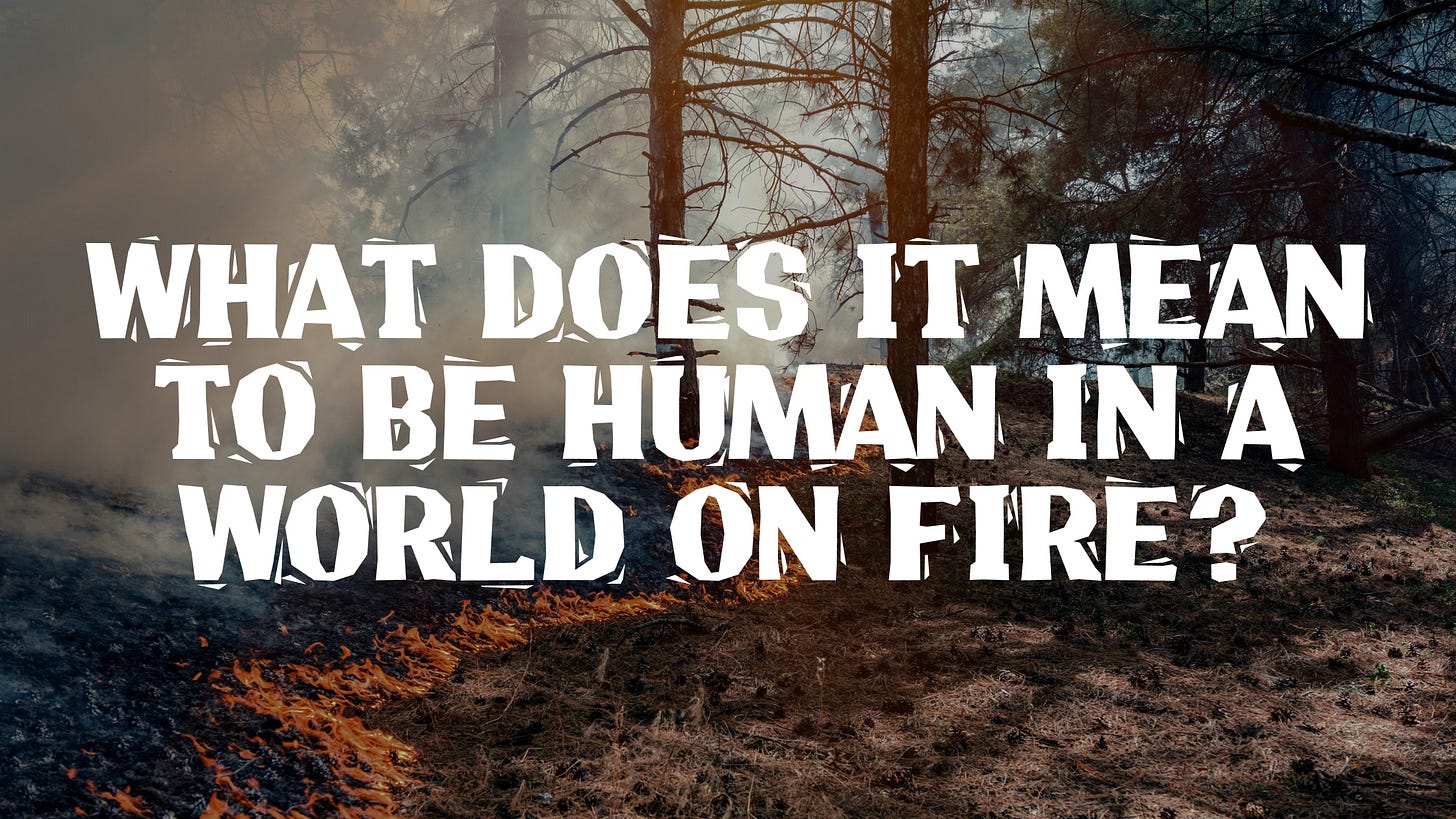What Does It Mean To Be Human In A World On Fire?
Toward a Theological Anthropology of Ensoilment
We have been exploring what it means to be human, in relation to the world and the divine (Theological Anthropology) in my Theologies of Social Transformation class this term, and I recently wrote a paper putting the thoughts of Wendy Farley and M. Shawn Copeland in conversation with one another within the context of an ecological paradigm.
While 98% of content on this substack is free access, my academic papers are reserved for paid subscribers. You can read the introduction from the paper below and/or gain access to the full paper by becoming a paid subscriber.
Introduction
So God created humans in his image, in the image of God he created them; male and female he created them.[1]
For nearly two millennia, Christians have been wrestling with the words of Genesis 1:27 as we have sought an adequate answer to the question, “What does it mean to be human?” From the Apostle Paul, to Augustine, to James H. Cone, and beyond, suffering has played an important role in helping develop theological anthropologies capable of making sense of concepts such as sin, evil, freedom, responsibility, and justice as they specifically relate to what it means to be a human being in relation to the world, and to the divine. It is to this age-old question that I will turn us toward once again in this paper by using the Revised Method of Correlation to explore the concept of resistance, particularly resistance of “radical suffering,” as one of the many aspects from which our humanity is fully incarnated into the world.[2] I will seek to do this by placing the work of Wendy Farley with her exploration of compassion as a rehumanizing force in a world tragically bound to finitude, in conversation with the work of M. Shawn Copeland, with her emphasis on an Enfleshed Freedom manifested as “Eucharistic Solidarity” and “counter imagination,” before offering a brief constructive proposal that invites us to consider how our humanity, both body and soul, proceeds not just from the breath of God, but from the very soil beneath our feet, requiring us to resist the forces that destroy the Earth, and thus a crucial aspect of what “makes us most human.”[3] I hope that by turning over the thoughts of Copeland and Farley again and again, in a compost like fashion, that a fecund understanding of what it means to be a free and responsible human being may emerge from this “creative exchange” as rich fertilizer for the work of re/membrance that I believe is crucial for the struggle for collective liberation, ecological repair, and becoming ensoiled human beings.[4]
[1] Genesis 1:27.
[2] Wendy Farley, Tragic Vision and Divine Compassion: A Contemporary Theodicy Louisville, KY: Westminster/John Knox Press, 1990, 12.
[3] Copeland 125, Wendy Farley, Tragic Vision and Divine Compassion: A Contemporary Theodicy Louisville, KY: Westminster/John Knox Press, 1990, 38, 53.
[4] Victor Anderson, Creative Exchange: A Constructive Theology of African American Religious Experience (Minneapolis, MN: Fortress Press, 2008), Kindle Loc 196.
Keep reading with a 7-day free trial
Subscribe to Seeds & Sabotage | Theology In A World On Fire to keep reading this post and get 7 days of free access to the full post archives.



